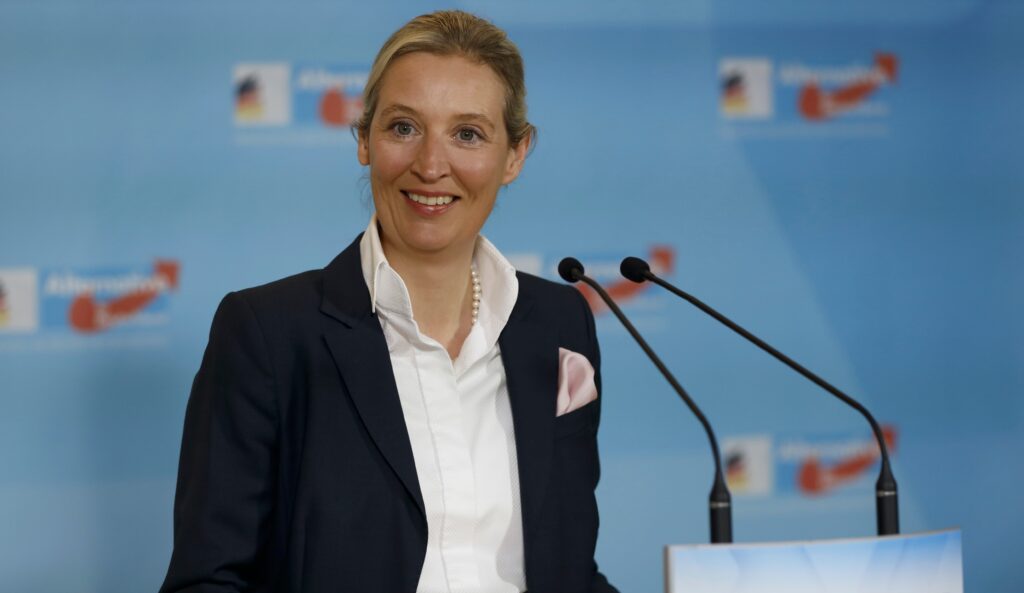Elon Musk and AfD leader Alice Weidel held a highly publicized conversation, sparking political and legal scrutiny.
Musk Praises Weidel as Germany’s Top Candidate
On Thursday, Elon Musk hosted AfD leader Alice Weidel on his platform X, discussing energy policy, migration, and the AfD’s ties to far-right groups. Musk referred to Weidel as the “leading candidate for Germany.” However, according to a ZDF poll from December 20, the AfD stands at 16%, trailing behind other parties like the CDU and the Greens.
Debate on Energy and Immigration
Weidel criticized Angela Merkel’s decision to phase out nuclear energy, arguing that Germany cannot sustain its industry solely on wind and solar power. Musk agreed, advocating for a balanced energy mix, including fossil fuels and nuclear power alongside renewables.
On immigration, Weidel repeated familiar AfD rhetoric, accusing the government of wasting taxpayer money on migrants. She claimed that 57% of entrants discard their passports, a statement that lacks evidence and conflates asylum practices with broader immigration issues.
Weidel Distances AfD from Far-Right Allegations
Weidel sought to distance the AfD from far-right ideologies, labeling Adolf Hitler a “socialist.” Despite her claims, the party remains under scrutiny for its links to extremist groups. Thuringian AfD politician Björn Höcke has been convicted multiple times for using Nazi slogans, and the party’s youth wing is officially classified as extremist by Germany’s domestic intelligence agency.
EU and German Authorities Investigate
The European Commission is reviewing whether the conversation violated the Digital Services Act, which aims to curb hate speech and misinformation. Additionally, the discussion could be deemed an illegal campaign contribution, as German law prohibits electoral support from non-EU entities.
Lobby Control, a German watchdog group, argued that the conversation effectively served as political advertising, given its wide reach on X. Whether the discussion will impact the February elections remains uncertain. Current polls show the AfD holding steady at 19%, with strong support in eastern Germany.


